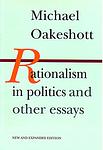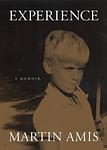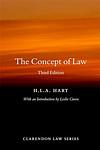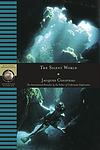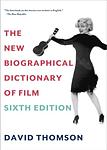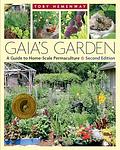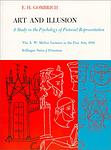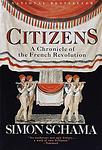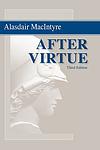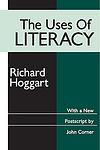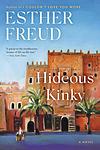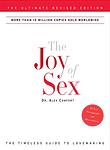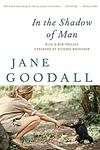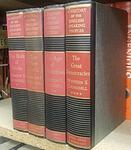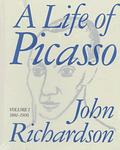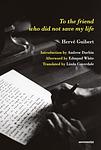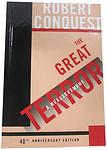The Greatest French, British "Nonfiction" Books Since 1950
Click to learn how this list is calculated.
This list represents a comprehensive and trusted collection of the greatest books. Developed through a specialized algorithm, it brings together 300 'best of' book lists to form a definitive guide to the world's most acclaimed books. For those interested in how these books are chosen, additional details can be found on the rankings page.
Genres
Countries
Date Range
Reading Statistics
Click the button below to see how many of these books you've read!
Download
If you're interested in downloading this list as a CSV file for use in a spreadsheet application, you can easily do so by clicking the button below. Please note that to ensure a manageable file size and faster download, the CSV will include details for only the first 500 books.
Download-
26. Rationalism in Politics by Michael Oakeshott
"Rationalism in Politics" is a collection of essays that critique the role of rationalism in politics, arguing that political decisions should be based on tradition and experience rather than abstract theories. The author asserts that rationalism, with its emphasis on premeditated, systematic approaches, often fails to acknowledge the complexity and unpredictability of human behavior and social dynamics. He emphasizes the importance of practical knowledge, acquired through experience, in political decision-making and criticizes the rationalist's disregard for such wisdom.
-
27. Alan Turing by Andrew Hodges
This biography provides a comprehensive look at the life and work of a pioneering computer scientist and mathematician who played a crucial role in breaking the Enigma code during World War II. It delves into his groundbreaking contributions to the development of computer science, his tragic prosecution for homosexuality, and his enduring legacy in the field of artificial intelligence and computing. The book not only celebrates his scientific achievements but also examines the social context of his time, shedding light on the challenges he faced and the impact of his work on future generations.
-
28. Modern Times by Paul Johnson
"Modern Times" is an in-depth historical analysis of the 20th century, covering major events, movements, and figures that have shaped the modern world. The author critically examines the impacts of World War I and II, the Cold War, the rise of totalitarian regimes, and the influence of religion and ideology on politics and society. The book also explores significant scientific and technological advancements, and their effects on human perception and behavior. It provides a comprehensive understanding of the complexities and contradictions of the 20th century, and how they continue to influence the 21st century.
-
29. Experience by Martin Amis
"Experience" is a memoir which delves into the author's life, exploring his relationships with his family, friends, and his own self. The narrative is a candid reflection on his father's influence, his friendships with other writers, his marriages, and his children. The author also discusses his experiences with fame, age, and loss, providing an intimate look into his personal and professional journey. The memoir is a blend of the author's unique humor, sharp observations, and poignant moments, offering a compelling and deeply personal narrative.
-
30. Religion And The Decline Of Magic by Keith Thomas
This scholarly work provides a comprehensive examination of the interplay between magic, religion, and science in sixteenth and seventeenth-century England. It explores how the Protestant Reformation and the rise of scientific thinking led to a decline in the practice of magic. The book delves into the ways people sought to understand and control their world before the widespread acceptance of the scientific method, analyzing why individuals turned to magic and how the Church and state responded. It also considers the transition from a society where magical beliefs were mainstream to one where they were increasingly marginalized and ridiculed, offering a detailed account of this significant cultural shift.
-
31. The Concept Of Law by H. L. A. Hart
This seminal work in legal philosophy offers a comprehensive analysis of the nature of law, articulating a sophisticated theory that emphasizes law as a system of social rules. It challenges earlier positivist and command theories of law, introducing the idea of the "rule of recognition" as a fundamental aspect by which a society accepts certain norms as legally binding. The book also explores the relationship between law and morality, the variety of legal systems, and the notion of legal rights, ultimately providing a framework for understanding the complex structure and functioning of legal institutions in modern societies.
-
32. The Hedgehog and the Fox by Isaiah Berlin
"The Hedgehog and the Fox" is an essay that presents a philosophical and intellectual dichotomy based on a line from an ancient Greek poet, "The fox knows many things, but the hedgehog knows one big thing." The author uses this concept to categorize thinkers and writers into two groups: hedgehogs, who view the world through the lens of a single defining idea, and foxes, who draw on a wide variety of experiences and for whom the world cannot be boiled down to a single idea. The author uses this framework to analyze the works of various historical figures and philosophers.
-
33. The Silent World by Jacques Cousteau
"The Silent World" is an autobiographical account of a pioneering oceanographer and his team's underwater explorations. The book documents their adventures and discoveries, including the development and use of the first scuba diving equipment. The author shares his experiences of exploring shipwrecks, interacting with various marine life, and the dangers they faced in the depths of the ocean. The book also emphasizes the importance of marine conservation and the need to protect our oceans.
-
34. A Biographical Dictionary Of Film by David Thomson
"A Biographical Dictionary of Film" is a comprehensive reference book that offers detailed profiles and critical assessments of actors, directors, and other significant figures in the film industry. The work combines factual information with the author's personal and often provocative views, providing both biographical sketches and broader commentary on the cinematic contributions of each subject. The entries not only highlight career milestones and notable films but also delve into the artistic and personal nuances that define the individuals, making it a valuable resource for both film scholars and enthusiasts seeking in-depth insight into the world of cinema.
-
35. Gaia by James Lovelock
The book presents a groundbreaking hypothesis that redefines Earth as a self-regulating system, where the biosphere, atmosphere, oceans, and soil function as a single living organism. This entity, named after the Greek goddess of Earth, maintains the conditions necessary for life through complex interactions among its components. The author, an independent scientist, argues that life on Earth actively shapes the environment for its own survival, challenging traditional views of the relationship between organisms and their habitat. The work has sparked widespread debate and research, influencing fields from biology to environmental science, and has profound implications for our understanding of life on Earth and how we approach environmental stewardship.
-
36. For a New Novel by Alain Robbe-Grillet
"For a New Novel" is a collection of essays by a prominent French writer and filmmaker, where he challenges the traditional norms of narrative and character development in novels. The author argues for a new form of novel, one that focuses more on the objectivity of description and the presentation of things as they are, rather than on the psychological analysis of characters. He criticizes the conventional novel for its reliance on plot, causality, and character development, and instead proposes a novel that is more concerned with the surface of things, their materiality and their presence in space and time.
-
37. Art and Illusion by Ernest H. Gombrich
"Art and Illusion" is a comprehensive study of the psychology of pictorial representation. The book explores how artists from the Renaissance to the present day have used illusions to enhance their work, and how our brains interpret these illusions. It delves into the science behind our perception of reality and how it influences art, providing a unique perspective on the intersection between psychology, philosophy, and aesthetics. The book also discusses the concept of 'schema' and 'correction' in an artist's work, and how the artist's perception of the world is constantly evolving.
-
38. Citizens by Simon Schama
"Citizens" is a detailed and comprehensive exploration of the French Revolution, offering a fresh perspective on the historical event. The book examines the revolution from its earliest beginnings to its aftermath, delving into the causes, key figures, and the immediate and long-term consequences. It provides a vivid and engaging account, highlighting that the revolution was not just a period of bloodshed and turmoil, but also a time of radical political and social change that shaped the course of modern history.
-
39. After Virtue by Alasdair MacIntyre
This book is a critique of contemporary moral philosophy, arguing that modern ethical theories have failed to provide a coherent basis for moral judgments. The author believes that the Enlightenment project of justifying morality through reason has ultimately failed, leading to a culture of emotivism where moral arguments are reduced to expressions of personal preference. The author suggests a return to Aristotelian virtue ethics, emphasizing the importance of moral character and the role of community in ethical life.
-
40. The Uses of Literacy by Richard Hoggart
"The Uses of Literacy" is a sociological study that explores the impact of mass media and popular culture on traditional working-class values and communities in Britain during the mid-20th century. The author combines personal memoir with scholarly analysis to examine how the spread of American consumer culture and the rise of mass media have influenced British society, especially among the working class. The book serves as a critique of the commercialization of culture and the erosion of authentic, local cultures and traditions.
-
41. Hideous Kinky by Esther Freud
A young woman travels to Morocco with her two daughters in search of a more fulfilling and adventurous life. The novel explores the experiences of the two young girls as they navigate this new and unfamiliar culture, their mother's search for spiritual enlightenment, and their struggles with poverty. The narrative is a poignant exploration of childhood innocence, the complexities of motherhood, and the clash of cultures.
-
42. Postwar by Tony Judt
"Postwar" is a comprehensive analysis of the history of Europe from the end of World War II to the early 21st century. The book examines the major political, cultural, social, and economic changes that have shaped the continent, including the Cold War, the rise and fall of the Soviet Union, the rebuilding of Western Europe, and the challenges of integrating Eastern Europe into the European Union. It also delves into the impact of these events on the daily lives of Europeans, exploring themes of memory, identity, and the struggle to come to terms with the past.
-
43. Papillon by Henri Charrière
The book is a memoir that chronicles the harrowing experiences of a Frenchman who is wrongfully convicted of murder and sentenced to life in the penal colonies of French Guiana. Determined to regain his freedom, he makes numerous escape attempts, facing incredible odds and enduring brutal conditions. His indomitable spirit and will to survive lead him through a series of adventures and misadventures, including solitary confinement, a stint in a leper colony, and living with indigenous tribes. Throughout his ordeal, his nickname, derived from the butterfly tattoo on his chest, becomes a symbol of his unyielding quest for liberty.
-
44. The Joy of Sex by Alex Comfort
This book serves as a comprehensive guide to human sexual behavior, offering detailed illustrations and instructions on various sexual techniques and positions. The author emphasizes the importance of mutual consent, respect, and emotional intimacy in sexual relationships, and promotes a positive and open-minded attitude towards sex. The book also provides advice on sexual health and contraception, making it a valuable resource for anyone seeking to enhance their sexual knowledge and experiences.
-
45. In the Shadow of Man by Jane Goodall
This book provides a fascinating and detailed account of the author's groundbreaking research on wild chimpanzees in Africa. The author offers insights into the complex social structure, behavior, and personalities of these primates, challenging the then-prevailing scientific belief that only humans were capable of having personalities and emotions. Through her studies, the author revolutionized our understanding of our closest relatives in the animal kingdom, and she also discusses the threats to their survival and the many challenges they face due to human activities.
-
46. A History of the English-Speaking Peoples by Winston Churchill
This book is a four-volume work that provides a comprehensive history of the English-speaking peoples from their earliest origins to the mid-twentieth century. It covers the history of Britain, the United States, Canada, Australia, and other English-speaking countries, exploring their shared cultural heritage, political institutions, legal systems, and social structures. The author, a prominent political figure and Nobel laureate, offers a unique perspective on historical events, including the Roman invasion, the Magna Carta, the American Revolution, and the World Wars.
-
47. A Life of Picasso by John Richardson
This biography delves into the life of one of the most influential artists of the 20th century, Picasso. The book provides an in-depth look into his early life, his relationships, his artistic evolution, and his influence on the art world. It offers a comprehensive exploration of Picasso's personal and professional life, shedding light on his genius and the complexities of his character. The author's detailed research and intimate knowledge of the artist's life make this book a definitive biography of Picasso.
-
48. To The Friend Who Did Not Save My Life by Hervé Guibert
The book is a candid and harrowing autobiographical novel that chronicles the life of a man grappling with the devastating impact of AIDS during the early years of the epidemic. Through a blend of fact and fiction, the narrative delves into the protagonist's personal experiences with illness, the medical establishment, and the emotional complexities of friendship and mortality. As he confronts his own declining health, the protagonist reflects on the relationships with those around him, including a close friend who is also facing the disease, and the betrayal he feels when a promised miracle cure fails to materialize. The novel is a raw and poignant exploration of the human condition in the face of an unforgiving illness.
-
49. The Great Terror by Robert Conquest
"The Great Terror" is a comprehensive analysis of Joseph Stalin's purges in the Soviet Union during the 1930s. The book delves into the brutal and systematic elimination of potential political rivals, intellectuals, and ordinary citizens, who were falsely accused of espionage, sabotage, or being counter-revolutionary. It provides a detailed account of the show trials, executions, and forced labor camps, shedding light on one of the darkest periods in Soviet history.
-
50. The Family, Sex and Marriage in England 1500-1800 by Lawrence Stone
This scholarly work provides an in-depth analysis of the transformation of family life, sexual mores, and marital structures in England from the 16th to the 18th century. It examines the shift from the medieval extended family to the closed domesticated nuclear family, exploring how economic, social, legal, and cultural changes influenced personal relationships and societal norms. The book delves into the roles of love, sex, and marriage during this period, revealing how the evolution of these concepts was intertwined with broader historical developments such as the Protestant Reformation, the rise of individualism, and the changing economic landscape. Through meticulous research, the text presents a comprehensive view of how private life was redefined over three centuries, reflecting the complex interplay between tradition and change in early modern England.
Reading Statistics
Click the button below to see how many of these books you've read!
Download
If you're interested in downloading this list as a CSV file for use in a spreadsheet application, you can easily do so by clicking the button below. Please note that to ensure a manageable file size and faster download, the CSV will include details for only the first 500 books.
Download